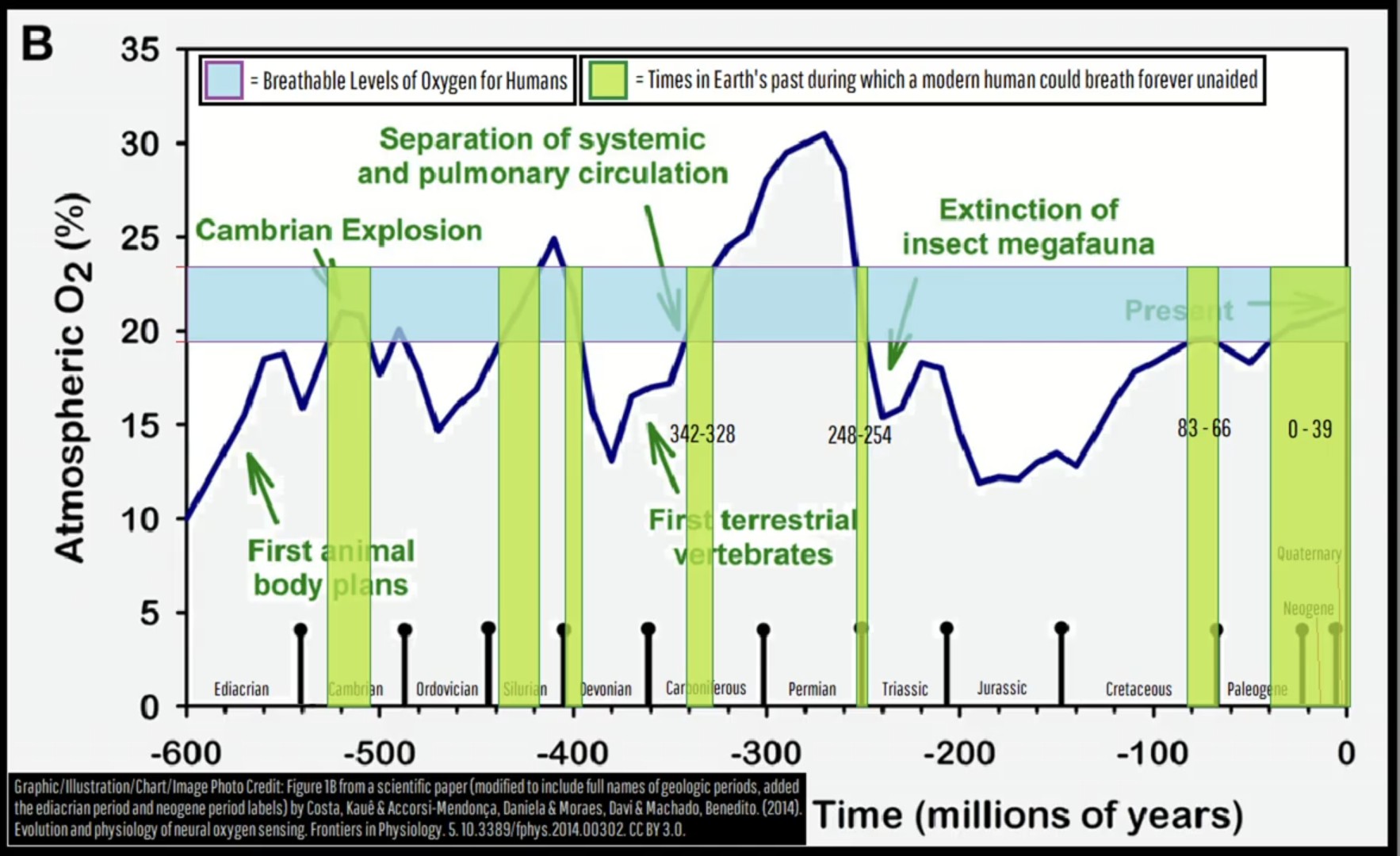https://en.wikipedia.org/wiki/Hyperoxia
This was a screenshot I took months ago while watching a Geology Hub upload on YT. It was a lightbulb moment for my understanding of mass extinction events, (the largest was 250ma). I’ve referenced this multiple times, so thought I might share. Perhaps you find it as interesting as I do.



Just to clarify, the partial pressure of oxygen in the atmosphere is about 3 PSI. The partial pressure of Nitrogen in the atmosphere is about 10 PSI.
Fire risk is also related to the partial pressure of the gas. 100% oxygen is not actually a problem, so long as the partial pressure of that oxygen is low. The partial pressure of oxygen in the Apollo 1 capsule was about 16.7 PSI.
Astronauts still use 100% oxygen in space suits pressurized to about 5PSI.
I had always assumed they just compensated with oxygen pressure to match atmospheric partial oxygen pressure, but I checked and indeed you’re right, but it was only that high an oxgen pressure for testing purposes on the ground. Once in flight, they would have dropped it to 5 PSI. It also makes sense as to why that Apollo 1 fire was so violent. Thanks for that learning opportunity ! :)
I was actually more referring to the chart implying that low oxygen means higher concentration of toxic gases